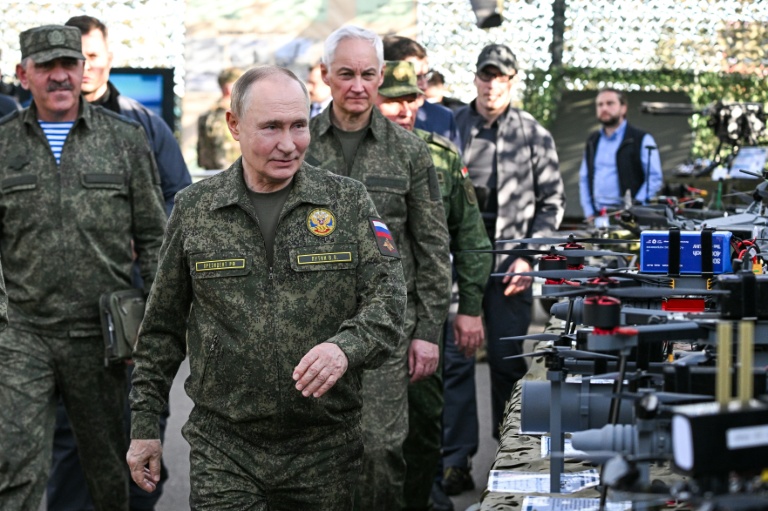
The Kremlin announced on March 15, 2024, that it will continue its military offensive in Ukraine, dismissing assertions from US President Donald Trump that Ukraine’s forces could reclaim territory lost to Russia. Moscow’s rejection of Trump’s remarks coincided with a wider context of ongoing military conflict, which has persisted since Russia’s invasion of Ukraine in February 2022.
During a recent meeting with Ukrainian President Volodymyr Zelensky at the United Nations, Trump described the Russian military as a “paper tiger” and suggested that Ukraine might be able to recover all its territory. This statement marked a significant shift in Trump’s stance, especially given his previous confidence in being able to resolve the conflict quickly. For weeks, he has expressed frustration with Vladimir Putin for his refusal to halt military actions.
Kremlin spokesperson Dmitry Peskov stated, “We are continuing our special military operation to ensure our interests and achieve the goals” set by Putin. He emphasized that Russia’s military actions are aimed at securing the future of the country for generations. The conflict has already resulted in tens of thousands of deaths and significant destruction across eastern and southern Ukraine, with Russian forces currently controlling approximately one-fifth of Ukrainian territory, including the Crimean peninsula, which was annexed in 2014.
Peskov responded directly to Trump’s comments, asserting, “The idea that Ukraine can recapture something is, from our point of view, mistaken.” He further dismissed the characterization of Russia as weak, stating, “Russia is more associated with a bear. And paper bears don’t exist.” While he acknowledged challenges within the Russian economy, he insisted that the military offensive would continue unabated.
In light of the ongoing conflict, Moscow’s finance ministry proposed raising the sales tax next year to manage the budget deficit that has arisen due to military expenditures. The United States, along with Ukraine, is intensifying efforts to cut off revenue from Russia’s energy exports, aiming to further pressure the Kremlin.
Ukrainian forces have escalated their attacks on Russian energy infrastructure, with recent drone strikes targeting oil facilities in central Russia and resulting in significant damage. Reports indicate that a Ukrainian drone attack in the port city of Novorossiysk resulted in casualties, adding to tensions in the region.
Peskov characterized claims that Russia violated NATO airspace as “hysteria,” following Trump’s suggestion that NATO allies should down Russian aircraft if they breach territory. NATO countries have reported multiple incursions by Russian military aircraft, heightening concerns about security in Europe.
As diplomatic efforts to resolve the conflict remain stalled, Peskov remarked that the anticipated rapprochement between Moscow and Washington, which many hoped would follow Trump’s return to the presidency, has yielded “close to zero” results. Zelensky characterized Trump’s apparent shift as a “big shift,” but skepticism remains among Ukrainians regarding whether these statements will translate into actionable support.
On the streets of Kyiv, residents expressed doubt about the effectiveness of Trump’s comments. One local, Bogdan Tkachuk, remarked, “It’s just another opinion from Trump, which changes every hour.” Another resident, Svitlana Fetisova, called for “more help, more action, not just words,” reflecting the urgent desire for tangible assistance as Ukraine continues to face substantial challenges.
The situation in Ukraine remains complex and precarious, with ongoing military operations and international diplomatic tensions underscoring the urgent need for a resolution.






